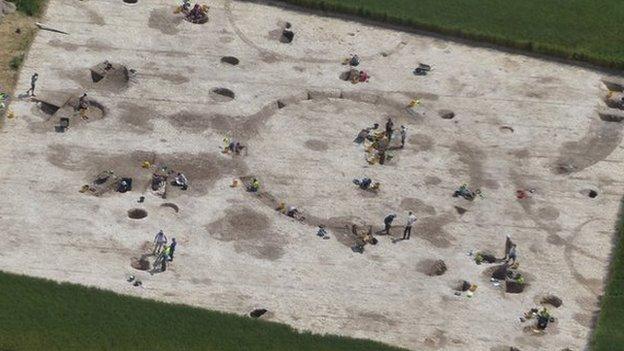Human sacrifice evidence in Iron Age bones, say Bournemouth researchers
- Published
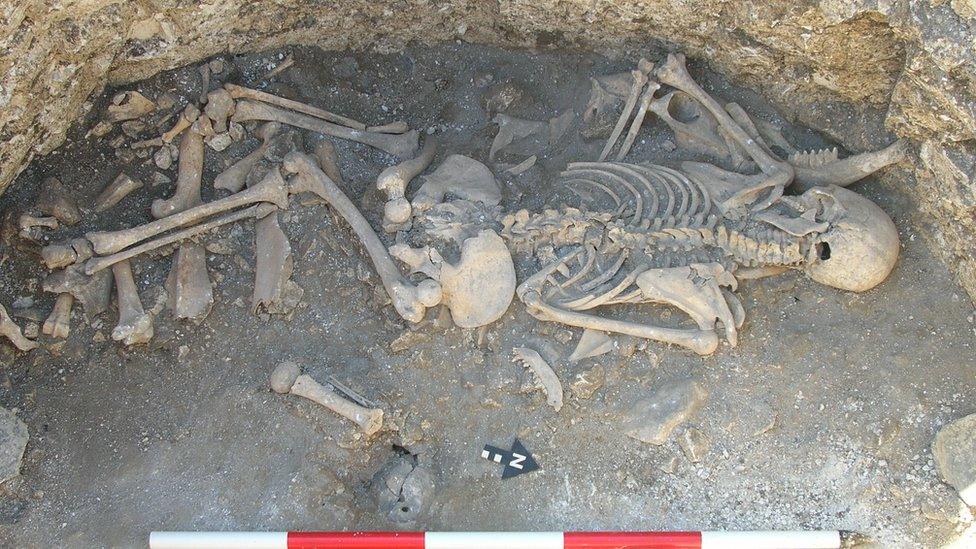
The skeleton of a woman in her late 20s were found face down on top of carefully arranged animal bones
An Iron Age woman whose remains were found in a pit may have been killed as a human sacrifice, researchers say.
A team from Bournemouth University said bones found in Winterborne Kingston, Dorset, in 2010 revealed the woman in her late 20s was stabbed in the neck.
Her spine also showed evidence of hard labour, her ribs were broken and isotopes in her teeth suggested she grew up more than 20 miles away.
Researchers said it was "rare physical evidence" of human sacrifice.
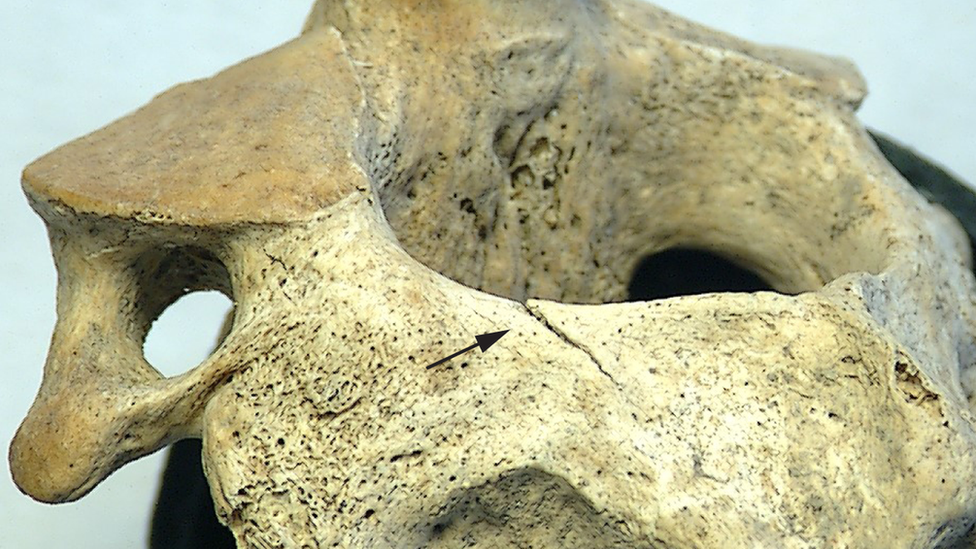
The bones revealed the woman was fatally stabbed in the neck
Dr Martin Smith, associate professor in forensic and biological anthropology, said: "In the other burials we have found, the deceased people appear to have been carefully positioned in the pit and treated with respect, but this poor woman hasn't.
"The young woman was found lying face down on top of a strange, deliberately constructed, crescent shaped arrangement of animal bone at the bottom of a pit, so it looks like she was killed as part of an offering."
Researchers from the university have been excavating the area at Winterborne Kingston for 15 years.
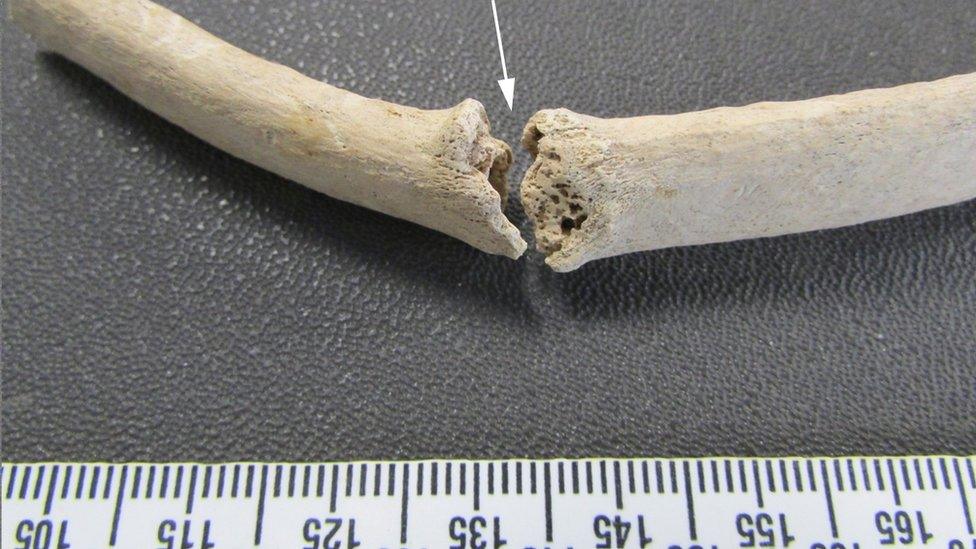
The broken rib is likely to have happened in the weeks before the killing
The findings about the 2,000-year-old remains have been published in the Antiquities Journal.
Mr Smith said: "All the significant facts we have found such as the problems with her spine, her tough working life, the major injury to her rib, the fact she could have come from elsewhere, and the way she was buried could be explained away in isolation.
"But, when you put them all together with her deposition - face down on a platform of animal bone - the most plausible conclusion is that she has been the victim of a ritual killing."

Follow BBC South on Facebook, external, X, external, or Instagram, external. Send your story ideas to south.newsonline@bbc.co.uk or via WhatsApp on 0808 100 2240, external.
- Published30 June 2022
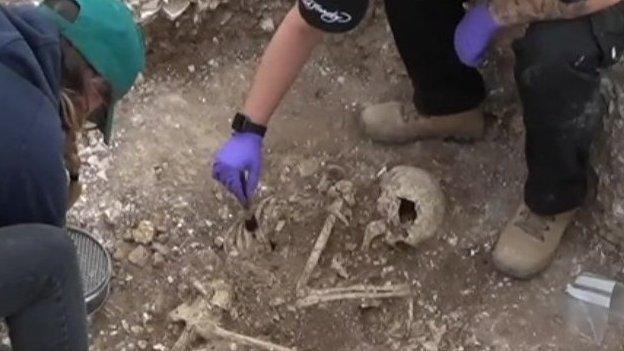
- Published15 July 2016
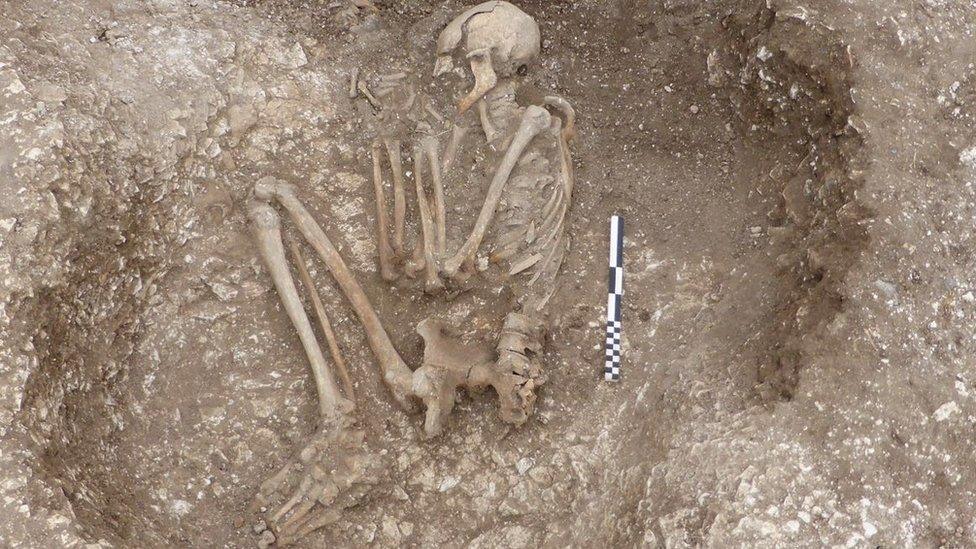
- Published11 July 2015
